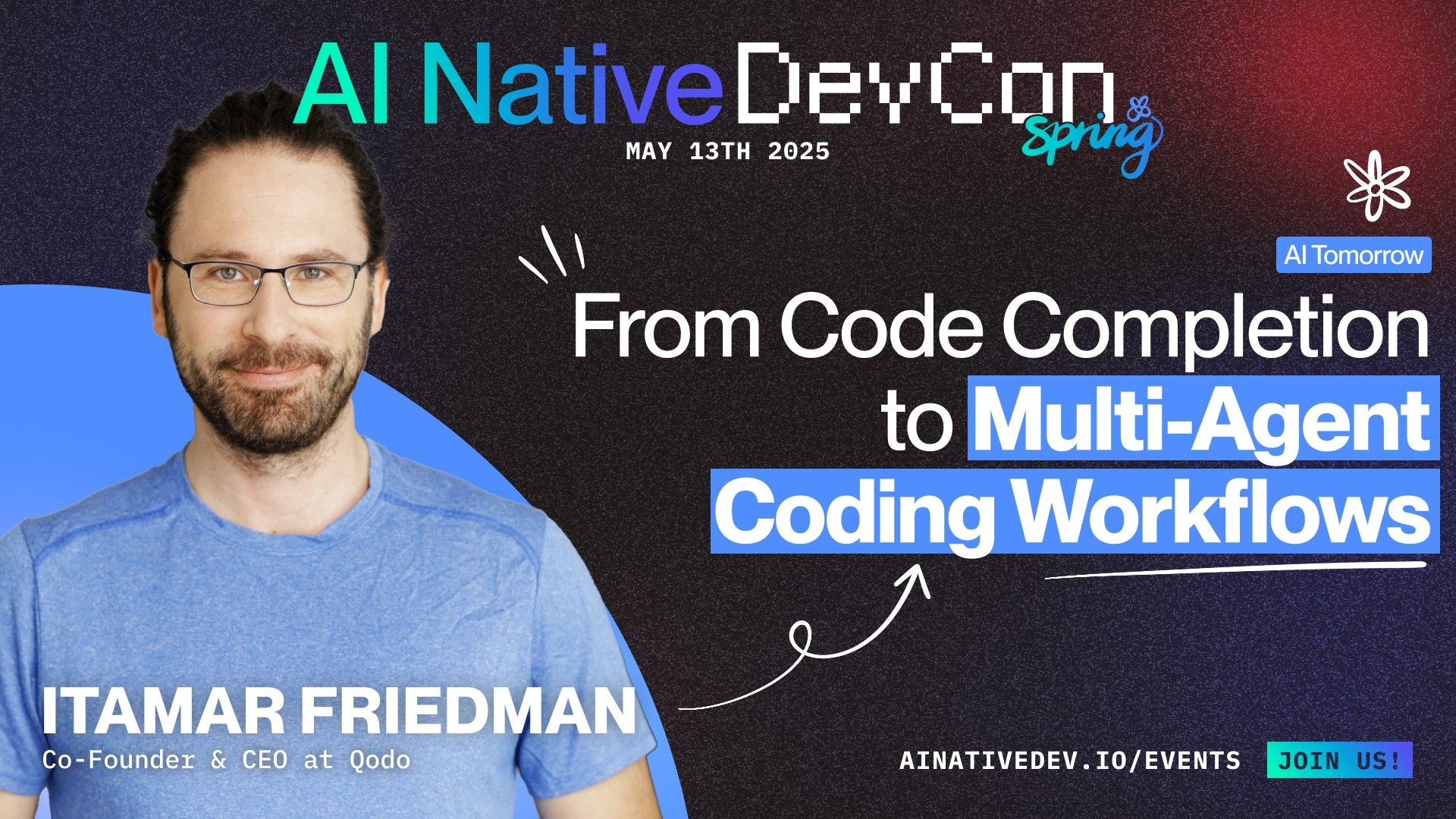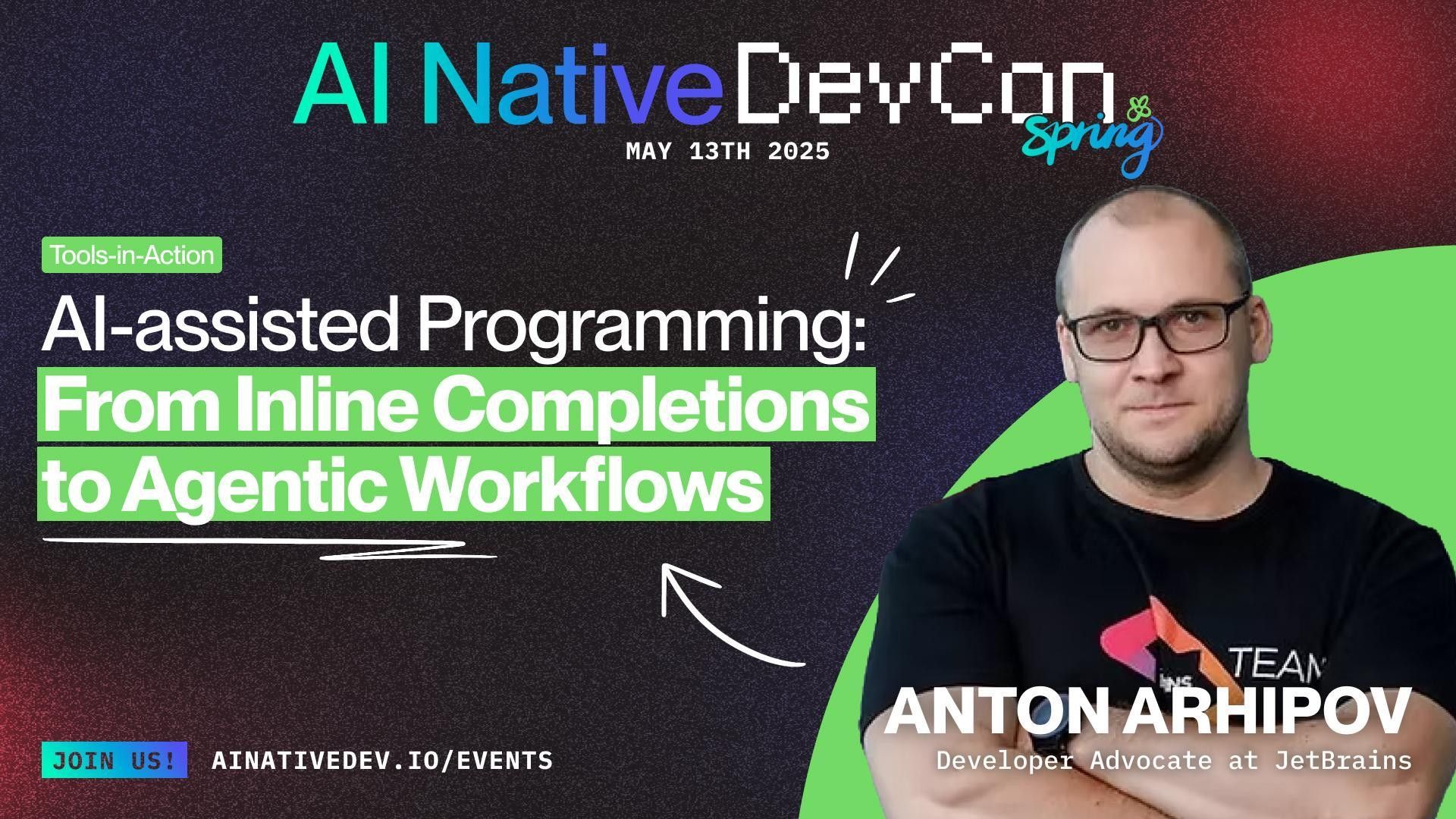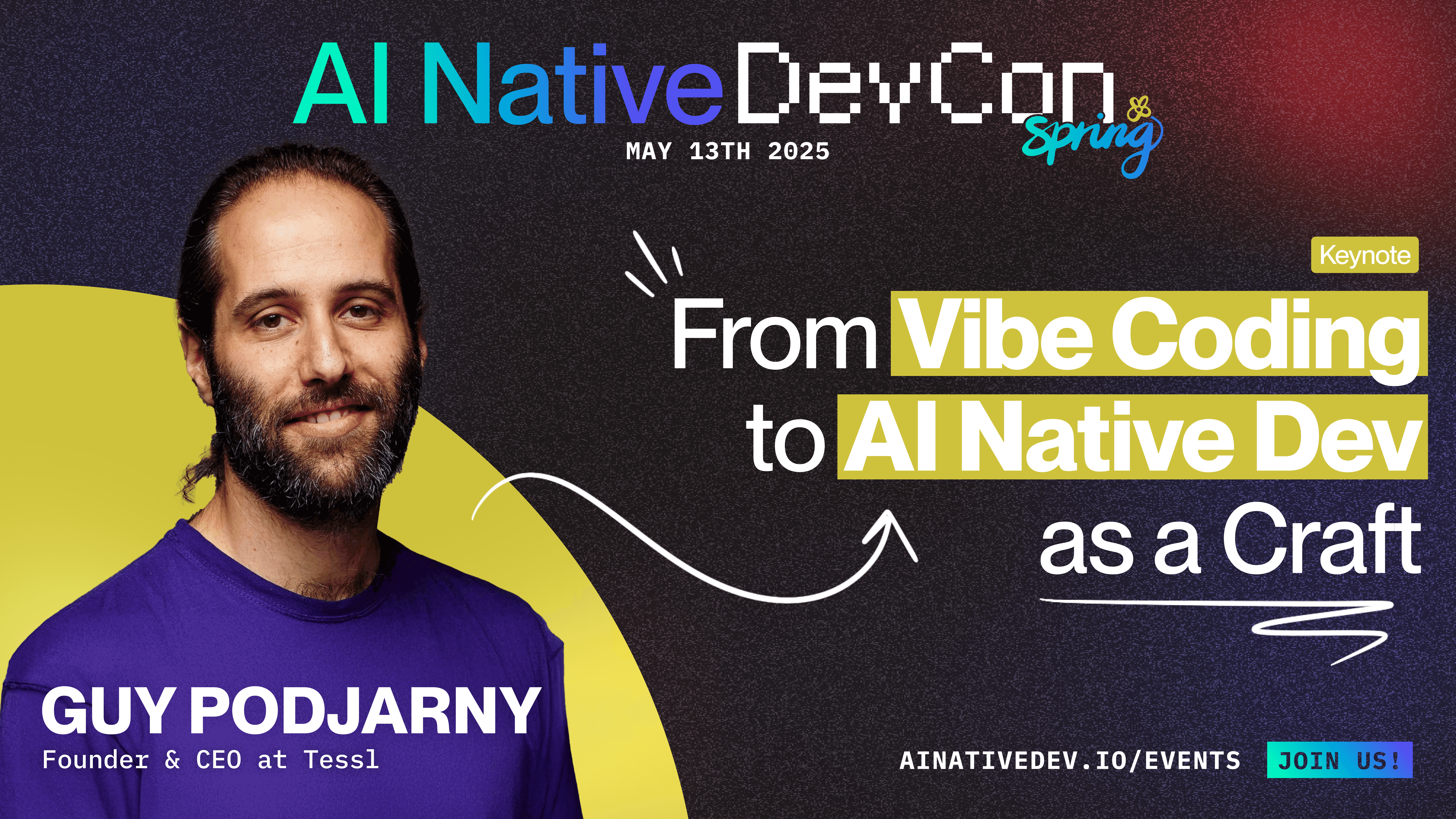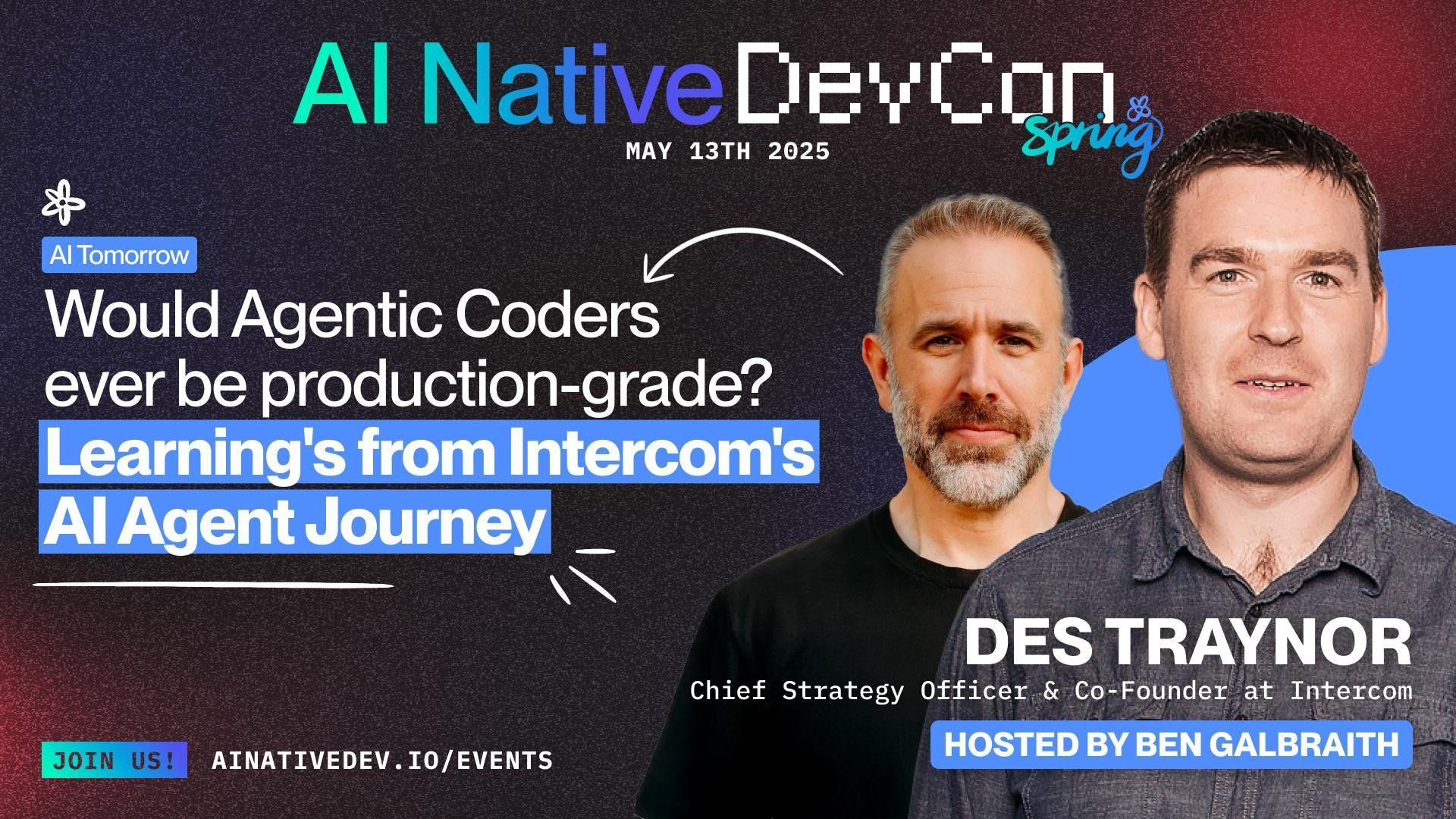
From Code Completion to Multi-Agent Coding Workflow
Itamar Friedman
4 min read13 May 2025
Co-Founder & CEO, Qodo
In this talk
In this talk, Itamar Friedman outlines a compelling vision for the future of software development, where AI not only assists but collaborates as a team member throughout the development lifecycle, promising enhanced productivity and quality in software engineering.
The Evolution of AI in Software Development
Itamar Friedman, co-founder of Kodo, delivered a thought-provoking talk on the transformation of AI's role in software development, tracing its journey from code completion to complex multi-agent coding workflows. This evolution is marked by three primary generations of AI tools, each significantly altering the landscape of software engineering.
From Autocomplete to Generative Chat
The first generation, described as the "autocomplete moment," introduced tools like Copilot, which enhanced the productivity of seasoned developers by predicting code snippets. According to Friedman, this era acted as an “amplifier” for skilled developers, offering significant efficiency gains. However, while some found this intrusive, the majority embraced the support it provided.
The second generation ushered in chat-based interfaces, or "genetic chat," which democratized coding by enabling less technical users to increase their productivity. However, this also introduced challenges, such as the proliferation of technical debt due to the sheer volume of generated code. Friedman highlighted the necessity of meticulous code review during this phase, stating, “You get a lot of code and you need to review it.”
The Rise of Multi-Agent Workflows
We now stand at the precipice of the third generation: end-to-end multi-agent workflows. This era is defined by AI's involvement across the software development lifecycle (SDLC), moving beyond the confines of integrated development environments (IDEs). Friedman envisions AI as an active team member, transforming the development process with "workflow-driven solutions."
Vibe Coding and the Need for Robust Workflows
The concept of "vibe coding," introduced by Andrej Karpathy, refers to a fluid, AI-assisted coding style that boosts productivity. However, Friedman warns that while this method is effective for simple projects, it falls short for enterprise-level software, which demands rigorous testing and maintainability. He argues for the integration of comprehensive workflows that facilitate planning, implementation, and thorough verification.
Friedman illustrates this with Kodo’s "Code Emerge" tool, which leverages AI to analyze historical pull request discussions, generating best practices tailored to specific repositories. This sophisticated retrieval workflow ensures quality and context relevance, avoiding the pitfalls of generic LLM prompts.
The Future: Multi-Agent, Workflow-Centric AI
In conclusion, Friedman envisions a future where multi-agent, workflow-centric AI systems redefine software development. These architectures, capable of handling tasks beyond the IDE, promise to enhance productivity while maintaining high standards of software quality. As Friedman puts it, “That super agent using a form of agent architecture…will enable you to vibe code with confidence and handle aspects outside the IDE such as code review, testing, and root cause analysis.” This approach, customizable for both novice and enterprise developers, represents a significant leap forward in the development landscape.
About The Speaker
Itamar Friedman
Co-Founder & CEO, Qodo
Qodo CEO/co-founder, code integrity leader, former Alibaba director after Visualead acquisition, Technion graduate

Join the discussion.
Stay connected, share your thoughts, and be part of the community.



